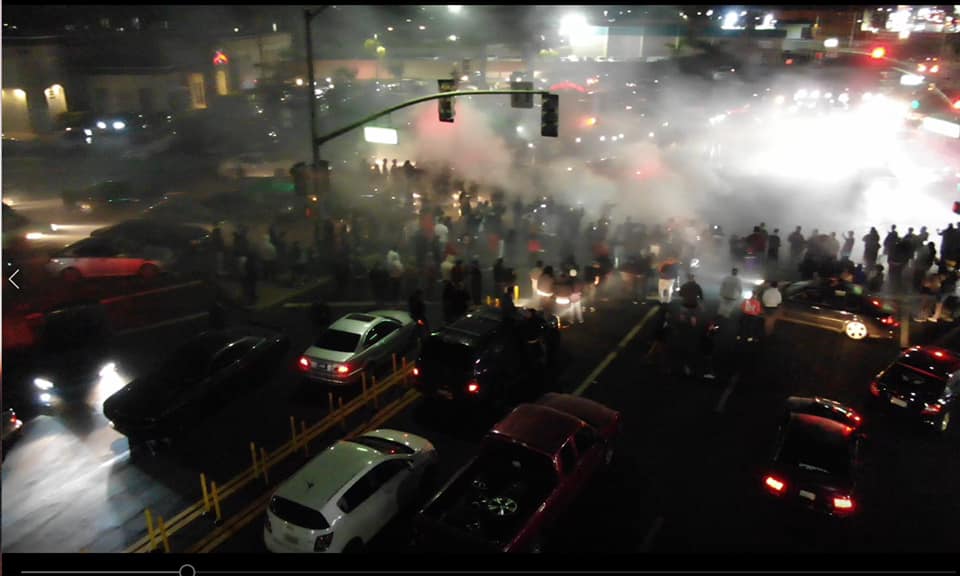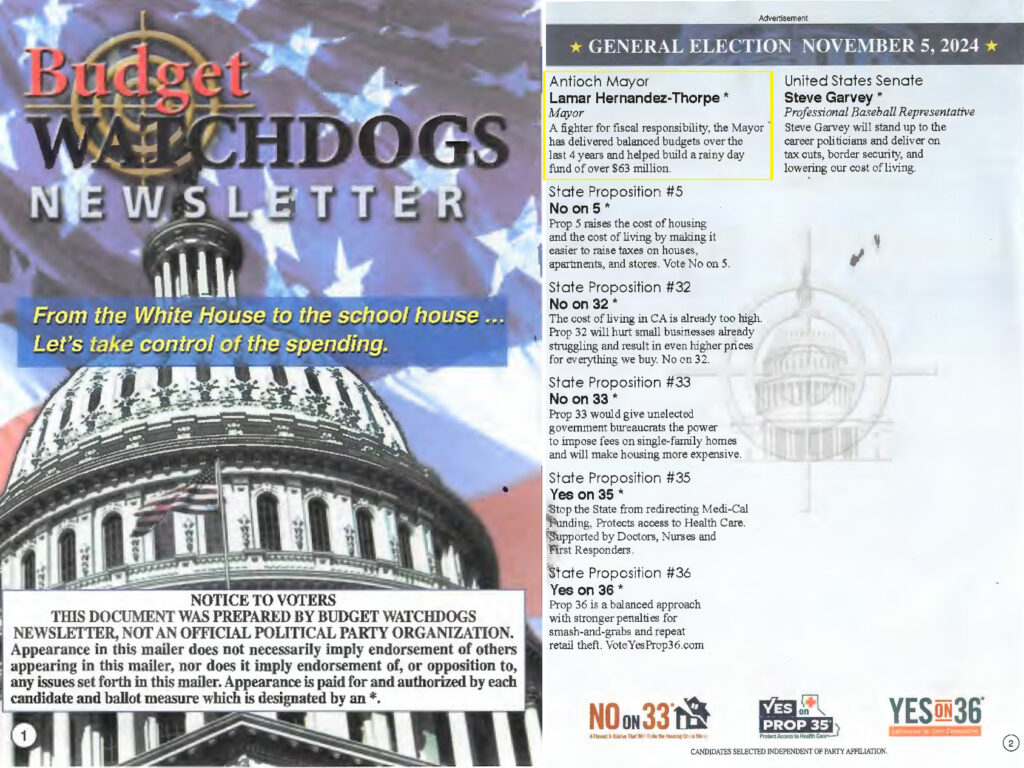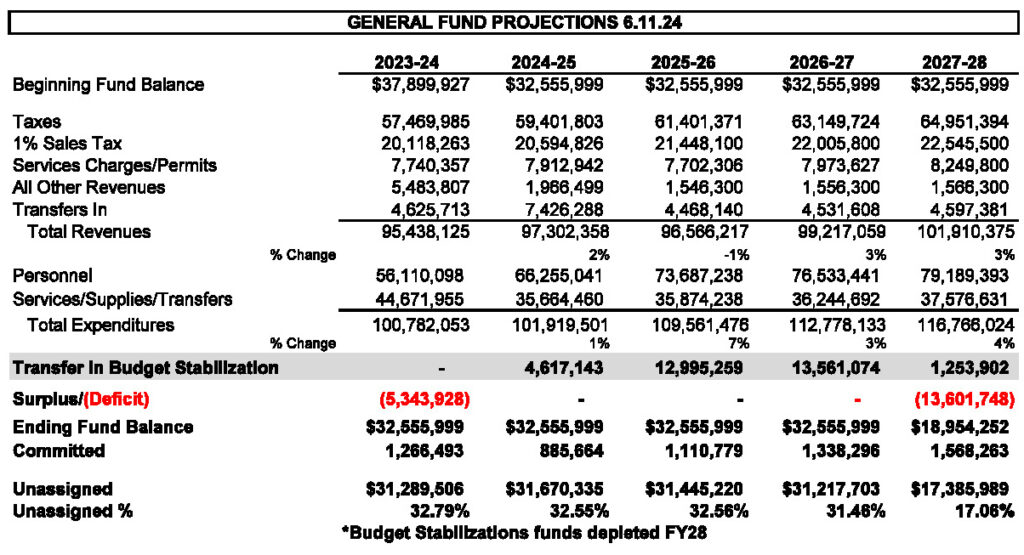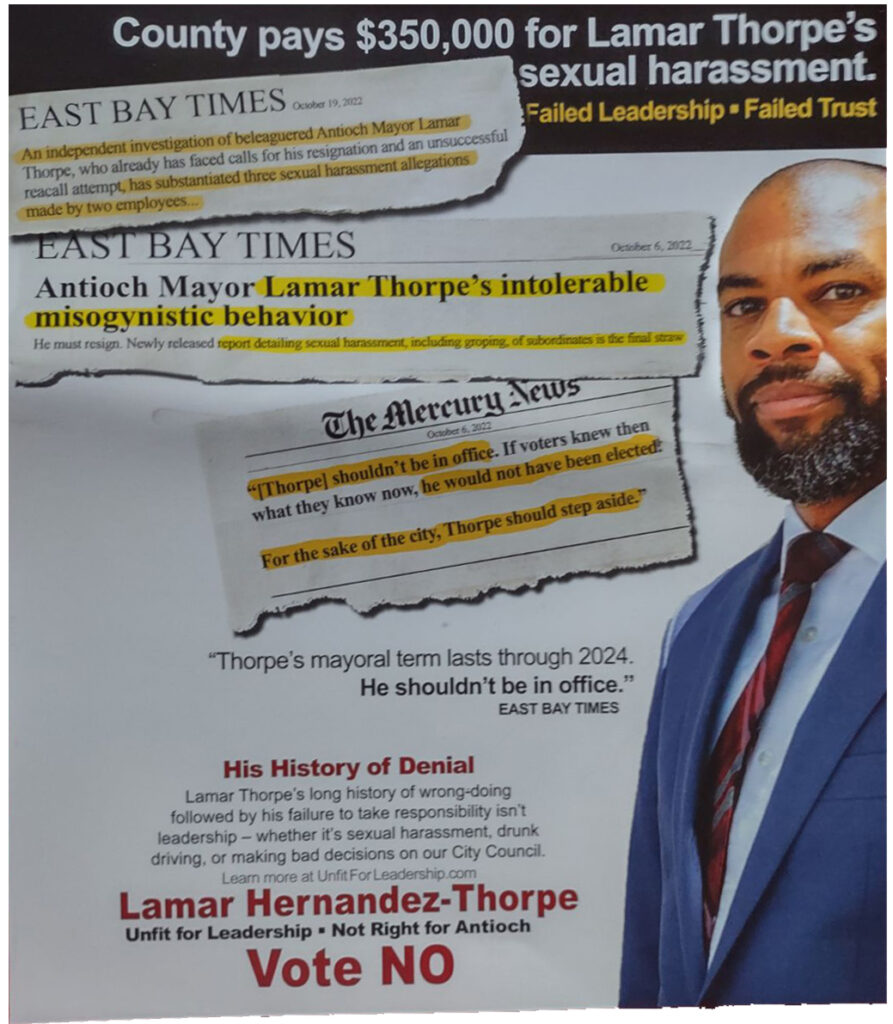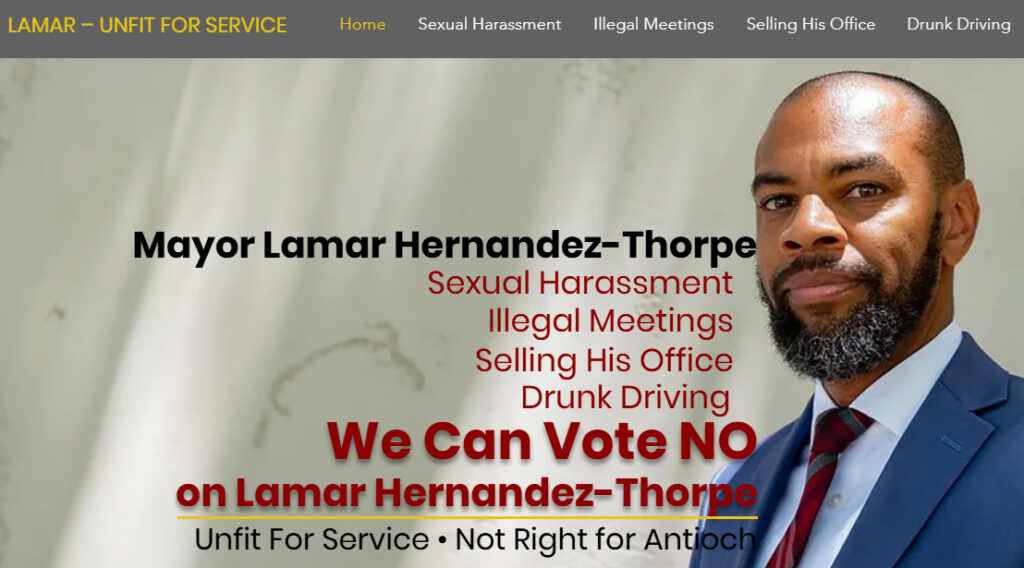During lame duck session Antioch council to consider 2nd assistant city manager position, more
Tuesday, November 12th, 2024
Double-time pay for Antioch cops, Sycamore Drive land lease for possible police substation, potential upgrades to Amtrak Station to stave off closure
Fiscal Year ends with $3.5 million surplus, mainly due to vacant position savings, mostly in police dep’t
Will respond to Grand Jury report noncompliance letter
City awarded $6.8 million grant to clear homeless encampments
By Allen D. Payton
During tonight’s Antioch City Council meeting, on Tuesday, November 12, 2024, the mayor and two members who will no longer be on the council as of early December, will, along with the other two members, consider multiple items, including adding a second assistant city manager at a cost of over $425,000 per year, even though the current position is still vacant.
Under agenda item #’s 15 and 16, at the request of District 1 Councilwoman Tamisha Torres-Walker, the council will consider leasing the vacant property across from the Sycamore Square shopping center on the corner of Sycamore Road and L Street, and space in the center for a police substation, even though the Antioch Police Facility is just one mile away.
In addition, under agenda item #1, the council will consider upgrades to the Amtrak Station to avoid its decommissioning. According to the staff report, “the fiscal impact is unknown at this time until direction on this item is provided.”
Those are in spite of the fact the City is facing double-digit deficits over the next three years, and federal funding for a variety of current projects and programs, including the Opportunity Village, homeless hotel, runs out at the end of December. However, the council will receive good news in the form of a net surplus of $3.5 million for Fiscal Year 2023/24 that ended on June 30th which will reduce those future fiscal year deficits.
Budget Adjustments – Agenda Item #10
That good news comes in the form of the Fiscal Year 2023/24 Unaudited Closing Numbers. According to the staff report, “Fiscal Year 2023/24 closed on June 30, 2024. Revenues exceeded expenditures by $8,862,934, however, $5,358,842 of this ‘excess’ is from encumbrances and project budgets unspent as of June 30th being rolled over into FY25…for a realized net surplus of $3,504,092. This amount is being set aside in the Budget Stabilization Fund at June 30, 2024, leaving a General Fund reserve balance of $43,258,769 and a balance in the Budget Stabilization Fund of $41,131,470 as of June 30, 2024.”
The report also shows FY2024 Revenues were $2,371,877 higher than projected due mainly to $1.36M in additional interest income from the high interest rate environment of the City’s investment portfolio. Expenditures were $11,726,745 less than projected. Yet, a large amount was due to $4,866,210 in salary savings from all unfilled positions, of which $3,554,451 was in the police department due to its understaffing.
During discussion of item #10 entitled, “Appropriating Expenditures for Encumbrances and Project Budgets Outstanding to the 2024/25 Fiscal Year Budget and Approving Other Amendments to the 2024/25 Fiscal Year Budget” the new city manager is requesting a second assistant city manager. According to the city staff report for the item, “The estimated annual salary and benefit cost of the position at Step E is $425,494, with the budget impact and amendment required for 6 months of $212,747.”
The current assistant city manager position is vacant, as Parks and Recreation Director Brad Helfenberger is no longer serving as the Acting Assistant City Manager.
Response to Civil Grand Jury’s Noncompliance Letter – Agenda Item #2
In response to Mayor Lamar Hernandez-Thorpe’s letter dated Sept. 11, 2024, responding to the Civil Grand Jury’s investigation report issued earlier this year, entited, “Challenges Facing the City of Antioch”, the Grand Jury rejected the council’s response. In two letters dated Oct. 3, 2024, and received by the City on Oct. 7, Foreperson Ed Sarubbi wrote in the first, “The Grand Jury…finds that it does not comply with the requirements of Section 933.05 of the California Penal Code in the following respects: Response to Findings 6 and 13: A response of ‘The City disagrees with this finding requires an explanation.’ The Grand Jury requests that you resubmit your responses in its entirety within 10 days of the date of this letter, following the directions in the original letter of transmittal.”

In the second letter, Sarubbi requested the same writing, “Response to Recommendations 1, 2, 3, 4, and 5: A response of ‘The City agrees with this recommendation’ is not a valid response.” He’s asking for the mayor to resubmit the council’s responses to those recommendations, also within 10 days.
The City is already out of compliance as a draft response letter was written and dated in October, but the council has yet to approve it, as the matter was not placed on the agenda until the Oct. 22nd meeting and then was continued to tonight’s meeting.
Double-Time Pay for Antioch Police Personnel in Violence Reduction Initiative – Agenda Item #11
After approving the Violence Reduction Initiative last month, allocating up to $500,000 for overtime pay and costs for the assistance of police and equipment from outside agencies, under item #11 the city council will consider adopting “a resolution authorizing the Chief of Police to pay double the standard hourly wage (“double-time”) to Antioch Police Department Sergeants, Corporals, Officers, Community Service Officers, and Dispatch personnel for working extra shifts in designated areas of the City to reduce violence.”
State Homeless Encampment Cleanout Grant – Agenda Item #12
More good news on the agenda includes the council considering adopting “a resolution accepting the Department of Housing and Community Development Division of Housing Policy Development (HCD) Encampment Resolution Funding (ERF)” Round 3 award in the amount of $6,812,686.
According to the city staff report for the item, #12, “The proposed project in Antioch aims to address a significant encampment located on wooded land near the intersection of Sunset Drive and Devpar Court. As one of the City’s two large encampments, it has been prioritized for resolution due to the vulnerability of its 30-40 residents and the hazardous conditions present at the site.”
City Attorney Oversight of City Clerk’s Office – Agenda Item #13
Under agenda item #13, outgoing City Clerk Ellie Householder is recommending that the city council adopt a resolution rescinding Resolution No. 2022/167, “Approving the City Clerk’s Request for the City Attorney to Provide Managerial Oversight of the City Clerk’s Department in Cooperation with the City Clerk” that had previously been approved.
Council Meeting Details
The meeting begins at 6:00 p.m. with a Closed Session on two lawsuits the City is facing, followed by the Regular meeting at 7:00 p.m. in the Council Chambers at City Hall, 200 H Street in historic, downtown Rivertown. The meeting can also be seen via livestream on the City’s website or viewed on either Comcast local cable channel 24 or AT&T U-verse channel 99. See the complete agenda packet.











